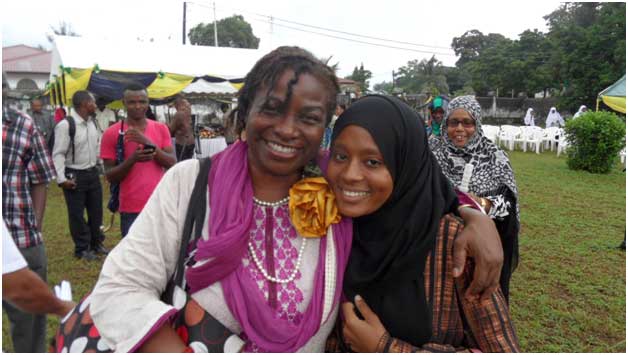Teenage pregnancy in Kenya is a crisis of hope, education and opportunity.
The countdown to a New Year has begun. Can 2019 be a year of affirmative action to ensure hope and opportunity for Kenya’s adolescent girl?
Consider this. The United Nations Population Fund (UNFPA) says that when a young adolescent girl is not married during her childhood, is not forced to leave school nor exposed to pregnancies, when she is not high risk of illness and death nor suffering maternal morbidities, when she is not exposed to informal work, insecurity and displacement; and is not drawn into an insecure old age-she becomes an asset for a country’s potential to seize the demographic dividend.
So what is the demographic dividend?
It means when a household has fewer children that they need to take care of, and a larger number of people have decent jobs, the household can save and invest more money. Better nutrition, education and opportunities and more disposable income at the household level. When this happens on a large scale, economies can benefit from a boost of economic growth.
One of the goals of development policies is to create an environment for rapid economic growth. The economic successes of the “Asian Tigers” during the 1960s and 1970s have led to a comprehensive way of thinking about how different sectors can work together to make this growth a reality. This helps explain the experience of some countries in Asia, and later successes in Latin America, and optimism for improving the economic well-being of countries, especially in sub-Saharan Africa.
The Republic of Korea is the classic example of how its gross domestic product (GDP) grew over 2,000 percent by investing in voluntary family planning coupled with educating the population and preparing them for the types of jobs that were going to be available.
With over 70% of Kenya’s population less than 30 years of age, the country’s favorable demographic ratios could unlock a potential source of demand and growth, Kenya is currently in a “sweet spot”. Fertility levels are declining gradually and Kenyans are living longer. There is reason for optimism that Kenya can benefit from a demographic dividend within 15 to 20 years. It is estimated that its working age population will grow to 73 per cent by 2050, bolstering the country’s GDP per capita 12 times higher than the present, with nearly 90 percent of the working age in employment.
The key to harnessing the demographic dividend is enabling young people and adolescent girls in particular, to enjoy their human rights and achieve their full human potential. Every girl must be empowered, educated and given opportunities for employment, and above all is able to plan her future family, this is the very essence of reaping a demographic dividend.
Each extra year a girl stays in high school, for example, delivers an 11.6 per cent increase in her average annual wage for the rest of her life.
The UNFPA Executive Director Dr. Natalia Kanem has said: “We are steadfastly committed to our three goals: Zero preventable maternal deaths, zero unmet need for family planning, and the elimination of harmful practices including violence that affect women and girls”.
So what can be done?
First, end all practices that harm girls. This means, for example, enforcing laws that end female genital mutilations and child marriage.
Second, enable girls to stay in school, at least through high school. Studies have shown the longer a girl stays in school, the less likely she is to become pregnant as an adolescent and the more likely to grow up healthy and join the paid labour force.
Third, reach the marginalized and impoverished girls who have traditionally been left behind.
Forth, make sure girls, before they reach puberty, have access to information about their bodies. Later in adolescence, they need information and services to protect themselves from unintended pregnancy and sexually transmitted infections, including HIV.
Finally, take steps to protect girls’ – and everyone’s – rights.
As we countdown to 2019, let us prioritize the development of every girl’s full human potential. Our collective future depends on it. We must do everything in our power to ignite that potential-for her sake and for the sake of human development and humanity.
Original article published at IPS by Siddharth Chatterjee
Siddharth Chatterjee is the United Nations Resident Coordinator to Kenya.
